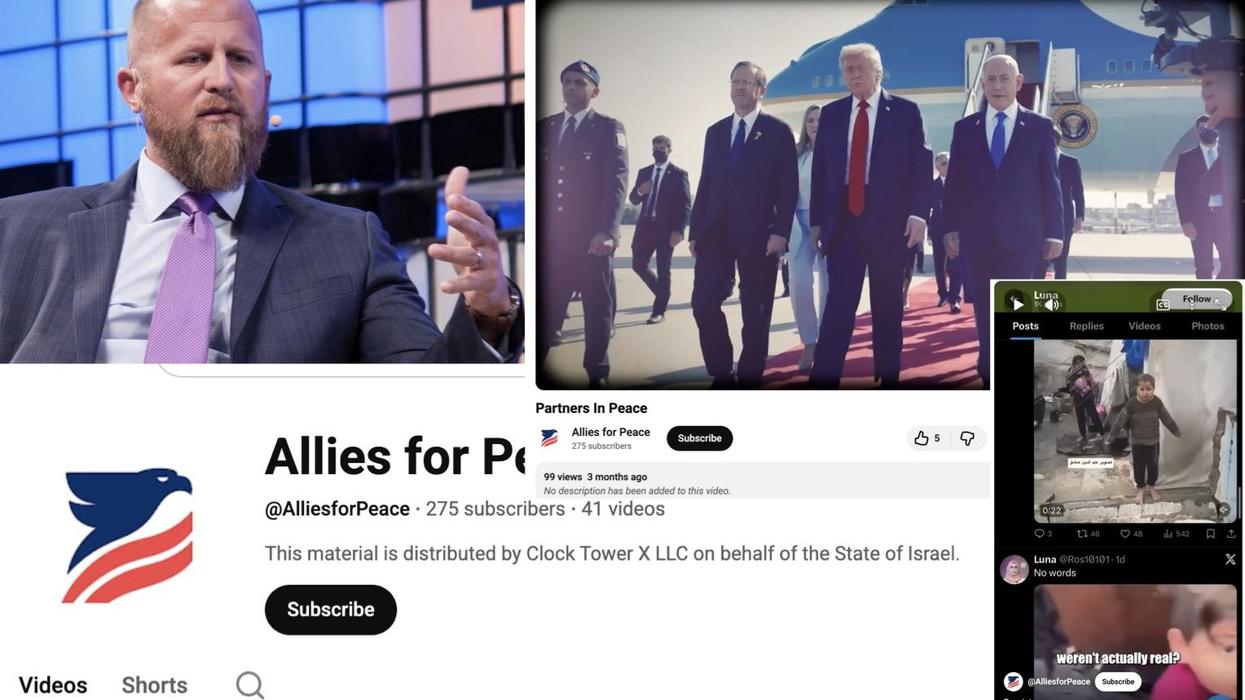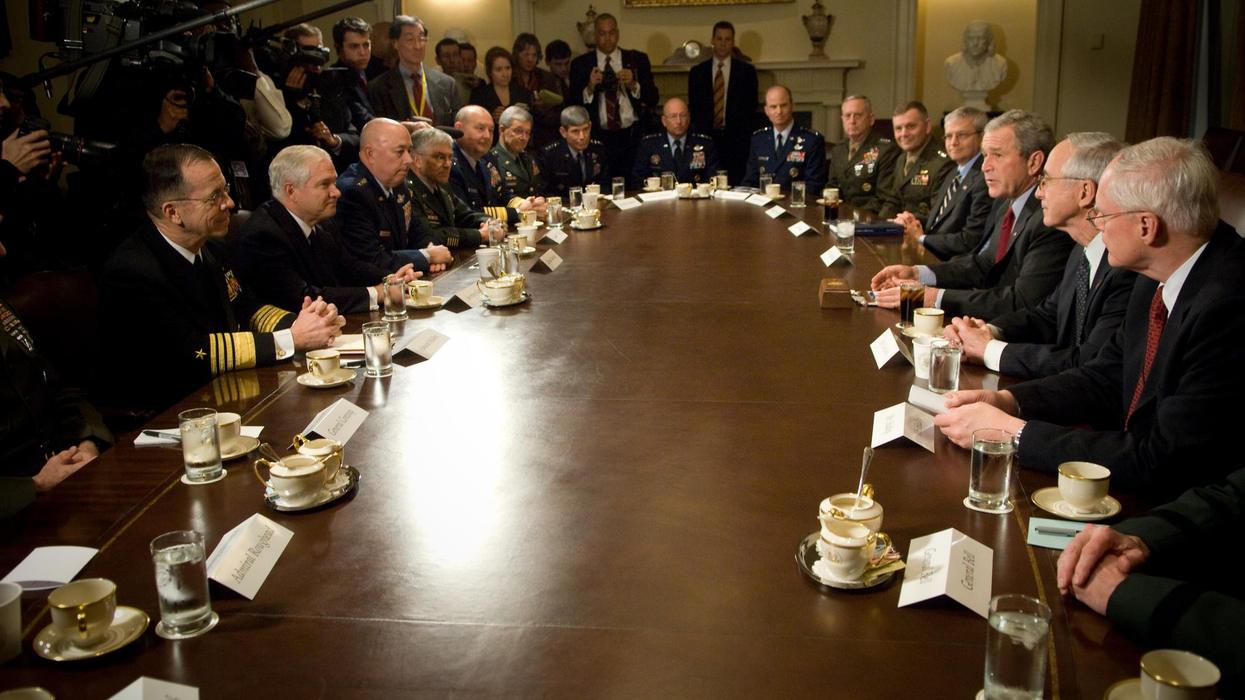The “Deal of the Century,” the mythical agreement floated for most of Donald Trump’s first term in office, is on the table again. Earlier this month, Avi Berkowitz, Trump’s new envoy to the equally mythical “Middle East peace process,” made his first official trip to Israel, setting off another round of speculation that the plan might soon be unveiled.
Although National Security Advisor Robert O’Brien denied that Israel’s upcoming elections — the third in a year — had any bearing on Washington’s plans, no one was convinced. Now, both Israeli Prime Minister Benjamin Netanyahu and his main rival, Benny Gantz, former Chief of General Staff of the Israeli Defense Forces, have been invited to Washington for what is expected to be a discussion of the plan’s details.
No one believes the plan will yield peace or an agreement of any kind. But that doesn’t mean it won’t have an impact. In the short term, it has already created a political shock wave in Israel as elections loom in March. In the longer term, it has the potential to deal a devastating blow to hopes for stability and, more importantly, for Palestinian rights.
Gantz’s gambit, Netanyahu’s shell game
Knowing that the Trump deal was likely to include Israeli annexation of substantial parts of the West Bank, Gantz tried to pre-empt the political advantage this would give Netanyahu by announcing that, if elected, he would annex the strategic Jordan Valley. Netanyahu had already made such an announcement back in September, and Gantz’s Blue and White party cried foul, claiming that Netanyahu had stolen their plan.
The Jordan Valley is in Area C, which falls under full Israeli control, according to the Oslo Accords. For most of the Oslo period, Israel has quietly taken measures ranging from demolition of homes to various economic pressures to compel Palestinians to leave Area C, and much of the Palestinian population that remains in the Jordan Valley is in the city of Jericho and its environs. That area would, according to Netanyahu’s annexation plan, remain as a Palestinian enclave surrounded by the annexed territory.
Having already been outflanked by Netanyahu on annexation once, Gantz was determined not to let it happen again. He also saw an opportunity to poach some voters from other center-right parties. While many in the United States portray Blue and White as a “centrist” or even “left of center” alternative to Netanyahu, the coalition leans right of center. When it comes to Israel’s occupation of the West Bank and Gaza, Blue and White has tried to cultivate an image of toughness, and has rarely opposed Netanyahu’s plans, positioning itself as Netanyahu’s Likud Party without the corruption at the top.
Polling has shown that annexation is popular with the Israeli public, as long as it is land that is annexed, not Palestinians. A plan like Netanyahu’s, where a key strategic area would be annexed with only a few thousand Palestinians at most being part of the deal, is even seen favorably by many who ostensibly support a two-state solution. For Gantz, then, he’s gambling that any votes his annexation announcement costs him would go to potential coalition partners like Labor, and would, in any case, be balanced by the votes he would gain.
Gantz is trying to find a way to tip the electoral balance in his favor. His posturing on annexation might move the needle a little, but he is risking losing the “support from the outside” that the non-Zionist and largely Palestinian Joint List gave him during the last round of elections. Without them, there is no way for Gantz to form a governing coalition.
Netanyahu also saw an opportunity in Gantz’s maneuver. He immediately challenged Gantz to support annexation in the Knesset, although there is nothing currently in the chamber to support. Next, he upped the ante by vowing to annex all Israeli settlements in the West Bank, a challenge Gantz can’t possibly match. Finally, U.S. Vice President Mike Pence, an ally of Netanyahu’s, made it clear when he announced the upcoming confab in Washington, that Netanyahu had initially been invited alone, but Netanyahu insisted that Gantz be brought on as well. Thus, the current prime minister paints himself as the statesman looking out for Israel’s interests no matter what the election results may be.
The future of annexation and the Trump peace plan
Gantz’s annexation statement included the proviso that any such step would be done “in coordination with the international community,” a curious addendum. The international community has been very clear that any changes to Israel’s international borders must be part of a permanent status agreement with the Palestinians. The only exception is the United States under the Trump administration, which seems poised to give its blessing to Israeli annexations, and perhaps even to the annexation of all settlements (which is likely to include the considerably greater territory that settlements control as part of their so-called regional councils).
Yet if he was trying to leave himself a back door, it wasn’t a very solid plan. As Netanyahu raises the stakes on this issue, pressure will only grow for annexation. The Trump plan’s support for the idea will increase that pressure, so even if Gantz really did intend this to be a bluff that he could back out of by citing, for example, the objections of key European trading partners, relatively friendly Arab states, and possibly even Democratic members of Congress, the demand among the Israeli mainstream for annexation of substantial parts of the West bank is only going to grow.
That will make it very difficult for future presidents to reverse Trump’s position. European objections are unlikely to have much impact. With Trump’s support, the inevitable protests from Saudi Arabia, the United Arab Emirates, Egypt, and other U.S. regional allies will be sharply worded but not followed up on. Trump will veto any United Nations action. The House of Representatives will likely pass some sort of resolution reaffirming its meaningless support for the now-academic “two-state solution” and the only constraint on annexation will be Israel’s own sense of how much opprobrium it wishes to face.
The constraints on Israel will be based on its own assessment of how various militant groups, including Hamas, Hezbollah, Islamic Jihad, and others will respond and how much support they will be able to get from Iran or other international players. Turkey and Qatar could play significant roles in any regional response, but neither is going to be eager for real confrontation with Israel and the U.S.
All of this will, no doubt, lend considerable energy to the Boycott, Divestment, and Sanctions movement, which, in turn, will escalate the fight in the U.S. over attempts to stifle free speech in order to prevent BDS from gaining traction. Denying that Israel is an apartheid state will be a logically untenable position.
Annexation represents Israel’s firm rejection, in practice, of a two-state solution. Reversing it, and promoting full, equal rights for Palestinian need not mean giving up a dream of two states. But it will mean that efforts to change the facts on the ground can no longer be limited by a two-state vision. Israel, by prioritizing annexation, will pre-empt that option for the foreseeable future, and those who wish to change U.S. policy as well as Israel’s will have to acknowledge that.

















